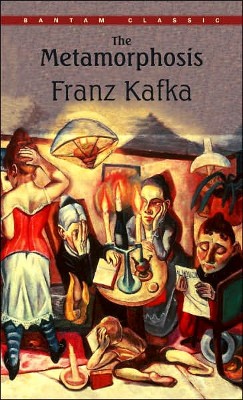
Corn Flakes and Coup D'Etats: "Bananas were available in the United States immediately following the Civil War. But they were a luxury item, like caviar, consumed more for status than taste (plantains, for cooking, however, had been a staple in the southern parts of the hemisphere since Spanish times). The bananas North Americans ate were sold at a dime a piece—about two dollars today—and came peeled, sliced, and wrapped in foil, mostly to prevent the fruit's suggestive shape from offending Victorian sensibilities, according to Virginia Scott Jenkins, author of Bananas: An American History. Shorn and overripe, these bananas offered hardly a clue that they'd one day become sowidespread" (52).
"The desire to remember unites our reasons for building for the living and for the dead. As we put up tombs, markers and mausoleums to memorialise lost loved ones, so do we construct and decorate buildings to help us recall the important but fugitive parts of ourselves. The pictures and chairs in our homes are equivalents--scaled for our own day, attuned to the demands of the living--of the giant burial mounds of Palaeolithic times. Our domestic fittings, too, are memorials to identity" (124).
Body : "One of the notions records in Flaubert's Dictionary of Accepted Ideas (Jacques Barzun translation): 'If we knew how our body is made, we wouldn't dare move.' Is this any way to think about our language (not to mention our ideas)? I don't think so. I think we want to know as much about our vowels as about our bowels. Which is to say, not too much, but it is interesting to note that vowel comes from the Old French vouel, which comes from the Latin littera vocalis, voiced letter; and bowel comes from the Latin for 'sausage,' botulus, hence the severe food poisoning named Botulismus by Germans, who know sausage, all of which raises (no, it does not beg) this question: Is it such as great idea, after all, to avoid knowing how sausage is made?" (40).
" Moab was the incest-born son of Lot, who had fled with his family from the fiery destruction of Sodom and Gomorrah. After Lot's wife had been turned into a pillar of salt because she dared to look at the burning cities, Lot's eldest daughter fed him homemade wine and seduced him so the family line would not die out. The offspring of that drunken incest was Moab, who became the king of the high plain at the eastern edge of the Dead Sea that eventually took his name ...Moab would also be the place were Ruth would flee to the 'alien corn' in one of the most famous love stories of the Bible" (132).

Vaseline Glass
"Pleasure Seas" by Elizabeth Bishop, 1939
In the walled off swimming-pool the water is perfectly flat.
The pink Seurat bathers are dipping themselves in and out
Through a pane of bluish glass.
Huge amoeba-motions directly through
The beds of bathing caps: white, lavender, and blue.
If the sky turns gray, the water turns opaque,
Pistachio green and Mermaid Milk.
But out among the keys
Where the water goes its own way, the shallow pleasure seas
Drift this way and that mingling currents and tides
In most of the colors that swarm around the sides
Of soap-bubbles, poisonous and fabulous.
And the keys float lightly like rolls of green dust.
From an airplane the water's heavy sheet
Of glass above a bas-relief:
Clay-yellow coral and purple dulces
And long, leaning, submerged green grass.
Across it a wide shadow pulses.
The water is a burning-glass
Turned to the sun
That blues and cools as the afternoon wears on,
And liquidly
Floats weeds, surrounds fish, supports a violently red bell-buoy
Whose neon-color vibrates over it, whose bells vibrate
Through it. It glitters rhythmically
To shock after shock of electricity.
The sea is delight. The sea means roomIt is a dance-floor, a well ventiliated ballroom.
From the swimming-pool or from the deck of a ship
Pleasures strike off humming, and skip
Over the tinsel surface: a Grief floats off
Keeping his eyes on
The bright horizon,
But shatters immediately, suffers refraction,
And comes back in shoals of distraction.
Happy the people in the swimming-pool and on the yacht,
Happy the man in that airplane, likely as not--
And out there where the coral reef is a shelf
The water runs at it, leaps, throws itself
Lightly, lightly, whitening in the air:
An acre of cold white spray is there
Dancing happily by itself.





27 comments:
In Seurat's Bathers at Asnières (1884) with the fuming chimney and sun transformed particulates, there is another suggestion of a swimmer, or Pisces, which is the most fertile sign of the zodiac, being the domicile of Jupiter and the exaltation of Venus. Yes, I want nothing more than to transform those materials.
I had forgotten about Bakouma uranium enrichment, and concentrating the porous ore body intended for a critical mass with oxygenated groundwater. It is frightening, too, the irrevocable.
Conjunction may fill you up with the sense of needing to bring something (or someone) to completion. You may even find that you simply can't let go of that person (maybe for years or even decades) until the business between the two of you is finished and/or somehow felt to be complete. There must be some output of your relationship. When deep inside we feel we need to change (though we may not be aware of it) the person comes and works as catalyst. Thank you for making me revisit these preoccupations, and projecting new creations, and not only in the most literal sense.
Exercise 84 will go here.
https://www.sciencesetavenir.fr/sante/decouverte-l-interstitium-le-potentiel-80e-organe-du-corps-humain-et-le-plus-grand_122536
https://1drv.ms/b/s!AsA4BY25Ql_1jkyvvy5-bMRQYP99
https://books.google.com/books?id=EybflpMf4U8C&dq=Works+of+Love+Kierkegaard&hl=en&sa=X&ved=0ahUKEwi8w4Dy86TiAhUCheAKHdV_BpUQ6AEIOTAD
https://www.youtube.com/watch?v=NhSxMBgT3qU
I know you do not want to be sweet; as I would not want to be thought so, but you have a sweet smile. It is so sweet it makes my eyes water.
https://cen.acs.org/biological-chemistry/Periodic-Graphics-Mucus-tears-saliva/101/i7
https://orau.org/health-physics-museum/collection/consumer/ceramics/uranium-containing-dentures.html
https://www.archdaily.com/1015739/des-cimes-residence-patriarche
https://phys.org/news/2024-04-danish-children-encounter-typical-family.amp
https://www.parents.com/how-peer-pressure-affects-children-8619289
I remember being a small child and suffering silently under the pressure to conform. I remember my middling parents acknowledging my feelings, and the grief subsided.
https://books.google.com/books?id=3D8TnD1Ea6sC&pg=PA30&dq=tov+and+the+letter+tet+tablets&hl=en&newbks=1&newbks_redir=0&source=gb_mobile_search&sa=X&ved=2ahUKEwiR4fDv8eeGAxWeMVkFHelXCBUQ6AF6BAgGEAM#v=onepage&q=tov%20and%20the%20letter%20tet%20tablets&f=false
https://www.nature.com/articles/s41598-023-31816-0
"The difficulty with comparing male and female competitiveness is that while males prefer direct and conspicuous forms of competition, female forms of competition are more difficult to observe. In studies of adults facing important consequences however, several studies suggest that females may be as or more competitive than males. For example, in an economic game, women competing on behalf on their children were just as competitive as men31. Additionally, across diverse cultures following the outcome of high level sports tournaments with large monetary payoffs, women exhibit more negative reactions than men32. Likewise, a large meta-analysis of laboratory and work environments concluded that women are less likely than men to like same-sex, but not other-sex, individuals who have attained higher positions33. Similarly, an American study of > 60,000 individuals showed that women held more negative views than men of their same-sex, but not other-sex, bosses34. Nevertheless, some of these forms of intrasexual competition may entail direct contests, which may simply be more dangerous to females than males, hence women’s greater aversion to them5.
We reasoned that when actual resources are at stake which could influence survival and RS, asymmetry in resources should provide a major impetus for competition31,35. Furthermore, resource asymmetry has been associated with self-reported competitive reactions in females, although the specific pattern of results is mixed. In one study, women predicted that they would be more aggressive when competing in a resource poor context36. Similarly women showed increased self-sexualization behavior when income inequality increased, suggesting greater self-promotion37. In contrast, women perceive same-sex rivals as more competitive when they are in resource-rich contexts38. Finally, there is evidence that resource scarcity affects females’ competitive attitudes, but levels of envy modulate the direction of the effect39. Nonetheless, envy of others’ resources is considered a prime motivator of competitiveness40."
https://www.newyorker.com/culture/the-weekend-essay/writing-as-transformation-louise-gluck
https://www.google.com/books/edition/The_People_in_the_Trees/EBGlDC0Ym64C?hl=en&gbpv=1&dq=The%20People%20in%20the%20Trees%20%22The%20men%20positioned%20the%20turtle%20in%20front%20of%20the%20fire%20closest%20to%20us%22&pg=PT188&printsec=frontcover
My mood is grey; not because of the weather, but because of the intraprofessional rivalry and institutional crackdown. We are short of staff, and I am written up for staying late. Very dystopian. The waxing and waning of work with one period favoring the employee; and one favoring the employer, applies. The selective pressures of any situation require deftness and foresight.
I worked a lot of overtime at the end of last year, but I am pulling back in the first quarter. The schedule is set until the middle of March, and then I will fall back from >50 hours, which has had the opposite effect on my employer - rather than respect or reward the dedication, I am disrespected and punished.
Caesura.
The Sorrows and Pleasures of Work (2008) applies. This place is building up around me with my consistent efforts. I will keep taking classes online for intellectual hygiene, but the winge-ing and scurrying to get a better situation are is not fruitful at this point. I have gotten what I wanted: I do not rely on my personality or my reverence for others to make a living. I can work as much as I like or I can work the minimum that affords me time to devote my neshama and creative products. They are the same.
I welcome change, while I appreciate the big glass showcase built around me for my purpose.
Yesterday, we had a howling PhD told the bypass was unsuccessful, and that he would wait with his pulseless leg until the beginning of the week on a heparin drip. The limb has to demarcate prior to the BKA, and it is a holiday, the OR is not open, even for you.
https://www.musee-orsay.fr/en/artworks/le-cirque-542
Yes, thank you for reminding me of Seurat's mention so early then.
*I do not care who one is, but he made a point to let everyone know. Rotting leg man. I told him that a retired chief cardiothoracic surgeon called one night to get through number to the MRI to scan his broken pelvis sustained through skiing. I gave him a list of numbers. This man started the surgery program here, and no one would expedite his care.
The point was to sit, and to accept the judgment, and elevate oneself to salvage what remains.
*to get through to a number
**Frantz was his name
No disrespect this year.
It is not disrespectful to suggest that each day is one day closer to death.
Uranium (U) became significant to me in the sixth grade, where I received uranium-92 as the element for my report when I wanted tungsten-74. I then thought of U as potential energy, and it was my element through the years as I learned about its applications.
I read Tom Zoellner's Uranium (2005) and then The Heartless Stone: A Journey Through the World of Diamonds, Deceit, and Desire (2006).
I will read Wallace Stegner's Angle of Repose (2014) because I thought it was about mine tailings, and the I glossed the human element.
Fifteen years ago, I was twenty-seven or so photographed with a phallic ice cream cone in the back. I felt fat and old and undesirable then, so the downward slide to the present has not been an an acute angle. A slight shift with managed expectations. I can be consoled by this, like a body with little estrogen to bloat and swell and disfigure.
What made me think of Angle of Repose is that the author in the novel is writing in a wheelchair. Scott Adams died yesterday, and he said that he knew it was the end when the metastatic prostate cancer invaded his spine paralyzing him the waist down.
I have read all his comics since the mid-nineties, and then I tuned in occasionally for the simultaneous sip.
Future project:
Samech (70). Arrondir les angles [ lesamech bo ]
https://greatbooksguy.com/2024/06/29/1972-pulitzer-prize-review-angle-of-repose-by-wallace-stegner/
https://devorahlearnsmasorah.com/2020/09/04/sweet-support/#:~:text=In%20Modern%20Hebrew%2C%20%E2%80%9Clesamech%20bo,wanted%20to%20share%20with%20you.
Post a Comment